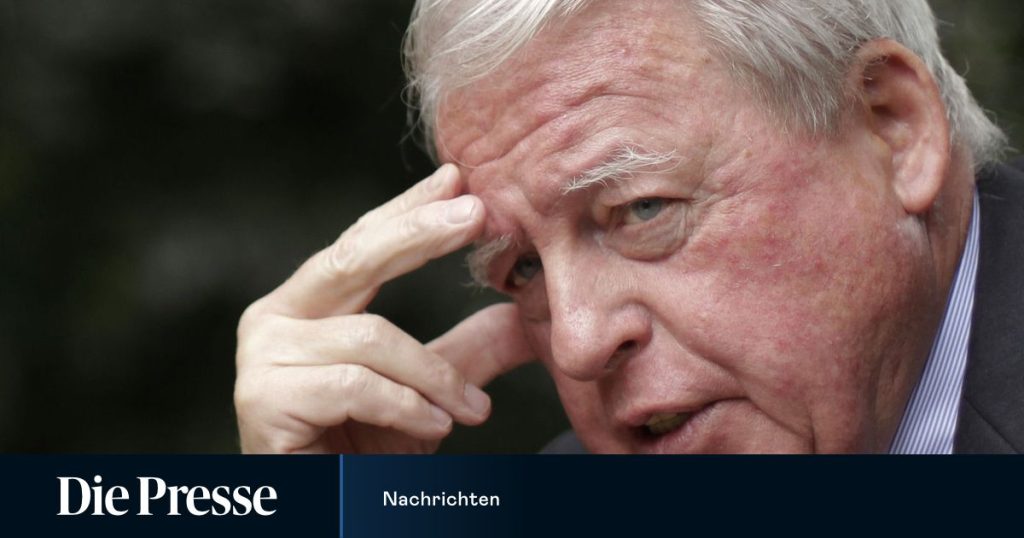The former OSCE special envoy, Martin Sajdyk, sees a “definite scope” on the Ukrainian side of neutrality or refusal of NATO membership.
Former Chancellor Franz Vranitzky (SPÖ) sees it Russia’s Neutrality Proposal for Ukraine Skeptical about the reference to the historical experiences of Austria. I surprised him Kyiv reluctance No, Vranitzky told the “Upper Austria News” (Friday edition). “The Russians had already offered to guarantee Austria’s neutrality. That would have meant too much dependence on them and it was rightly denied.”
According to Vranitsky, one must “examine very carefully” what lies behind Moscow’s proposal, both politically and militarily. “One should not expect an immediate solution.” Moscow on Wednesday presented Ukraine’s neutral status along the lines of Austria or Sweden as a “compromise”. The Ukrainian government responded negatively and insisted on concrete security guarantees from countries other than aggressor Russia.
Criticisms of the “NATO way” in the West.
In the interview, Vranitsky also criticized the mistakes of the West towards Russia. The “window of opportunity” that existed in the 1990s has not been exploited. “Instead, the well-established path of NATO has been followed,” the former chancellor said. Vranitsky said that Vladimir Putin in 1999 was a “different person,” and emphasized that he “doesn’t understand Putin.”
The head of the government for a long time (1986-1997) called for the development of an independent European defense policy and the reduction of economic dependence on Russia. “Many of us in the energy, construction and banking sectors have pulled Russia’s card (…) now we have to go a long way.” In the field of defense, the SPÖ politician spoke in favor of the army “(should) develop a force that is taken seriously”. “It can then be reliably available within the framework of the rules of assistance – while maintaining neutrality, for example with the blue helmets,” wrote Vranitzky, who described the withdrawal of Austrian UN soldiers from the Golan Heights announced under SPÖ Chancellor Werner Faymann. In 2013 he also criticized the “incomprehensible”.
Former OSCE negotiator sees room in neutrality
On the other hand, the former OSCE Special Envoy Martin Sagdyk sees a “definite leeway” on the Ukrainian side to neutralize or refuse NATO membership. “Then the question arises about the security guarantees available to Ukraine in this case,” Sagdyk said in an interview with the Wiener Zeitung newspaper (Friday edition).
The Austrian diplomat recalled the 1994 Budapest Memorandum, according to which Ukraine renounced nuclear weapons “inherited” from the Soviet Union, and in return Russia, the United States and Great Britain pledged to respect Ukraine’s sovereignty and existing borders. The Russian-Ukrainian Treaty of Friendship was signed in 1997, according to which Russia respects the current borders of Ukraine and the territorial integrity of the country. “Unfortunately, Kyiv saw that these agreements did not help much when the conflicts began in Crimea and in eastern Ukraine in 2014,” says Sedek.
In the 1950s, Austrian neutrality was adapted to the needs of the time. “In any case, it is interesting that the Kremlin spokesman, Dmitry Peskov, introduced neutrality, and also said that Russia would not have anything against Ukraine’s EU membership. That was different in 2014,” says Sedek. At the time, no EU perspective was expressly articulated in the EU-Ukraine Association Agreement.
For Ukrainian President Volodymyr Zelensky, on the other hand, it was “impossible to make territorial concessions without a parliamentary decision. So I can’t imagine Ukraine agreeing to concede its claim to Crimea, Donetsk or Luhansk. There would be none so there is still a majority in the Parliament among the population.
>>> Vranitsky in “Upper Austria News”
(APA)

“Food practitioner. Bacon guru. Infuriatingly humble zombie enthusiast. Total student.”








More Stories
Kyiv: Russian Kursk offensive halted
US Presidential Election: Former US Government Officials Warn Against Donald Trump's Election
Netherlands wants to leave asylum system